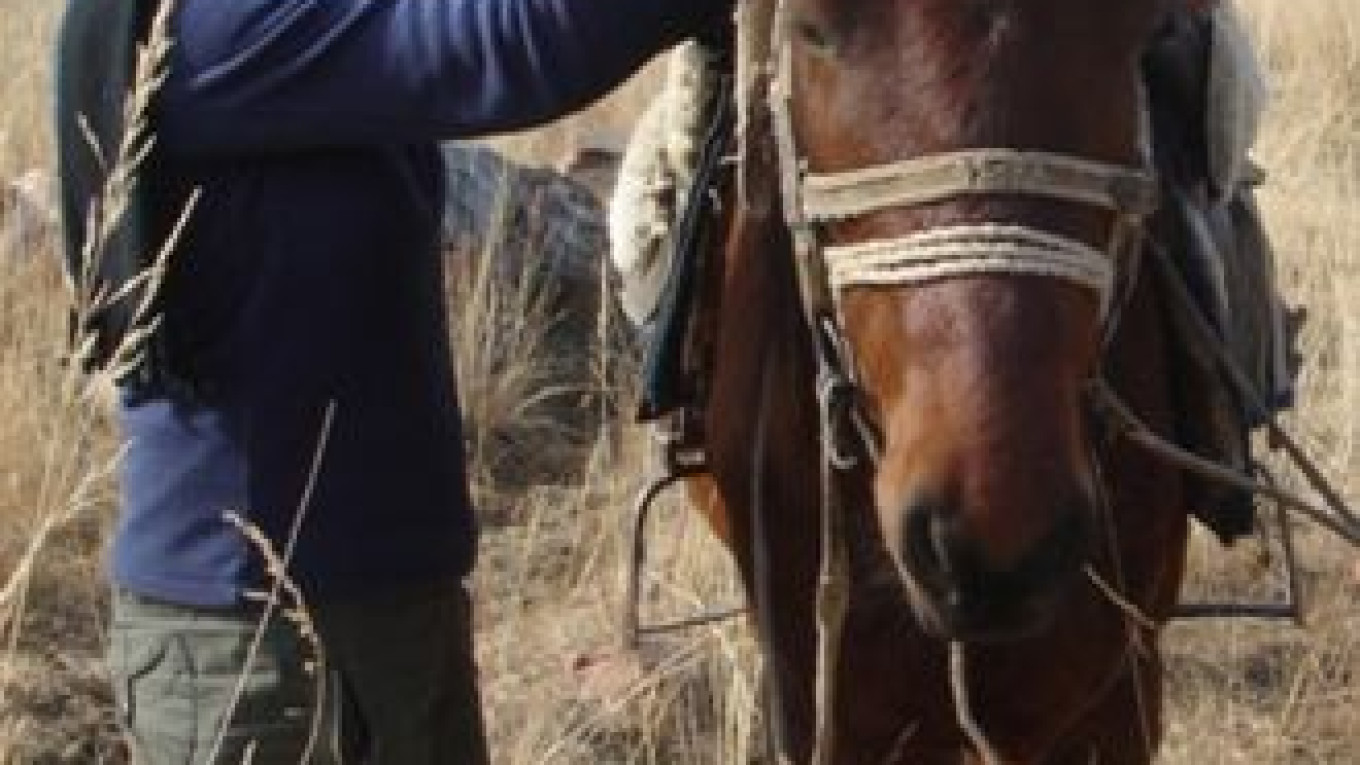LONDON — A genetic study of horses across Eastern Europe and Central Asia has traced the domestication of one of man's most powerful animal allies to wide-open grasslands shared by southwest Russia, Ukraine and Kazakhstan, researchers said.
Researchers generally date domestication to about 6,000 years ago, but genetic evidence taken from modern-day horses has suggested a wide variety of ancestors, raising the possibility that horses were tamed independently in several different places.
The University of Cambridge's Vera Warmuth said she and her colleagues had used a combination of genetics and math to narrow down the origin of horse domestication to the "western Eurasian steppe" — an area now shared by southwest Russia, Ukraine and Kazakhstan.
The research followed 16 years of collecting hair samples from more than 300 horses in Russia, China, Ukraine, Kazakhstan, Kyrgyzstan, Mongolia and Lithuania — areas where horses were the first to be domesticated and weren't too heavily bred.
Warmuth said fellow researchers took hair samples from "local village-type horses," simple animals whose genetic profiles would be less likely to have been deformed by inbreeding or crossbreeding typical of their Western European cousins.
She said the horses' genetic profiles were compared to various scenarios plugged into established mathematical models that measure how populations spread and change over time.
The results suggested that the wide diversity of horse DNA could be explained by the frequent breeding of domesticated male horses with wild mares brought in by early horseback riders because "breeding with existing stock was too slow," Warmuth said, speculating that early societies might have used wild females "because they're a bit more tractable."
Mark Thomas, a professor of evolutionary genetics at University College London who wasn't involved with the research, said he believed that the methodology was sound.
The research, published this week in the Proceedings of the National Academy of Sciences, was funded by Britain's Biotechnology and Biological Sciences Research Council, the German Academic Exchange Service and the London-based Leverhulme Trust.
A Message from The Moscow Times:
Dear readers,
We are facing unprecedented challenges. Russia's Prosecutor General's Office has designated The Moscow Times as an "undesirable" organization, criminalizing our work and putting our staff at risk of prosecution. This follows our earlier unjust labeling as a "foreign agent."
These actions are direct attempts to silence independent journalism in Russia. The authorities claim our work "discredits the decisions of the Russian leadership." We see things differently: we strive to provide accurate, unbiased reporting on Russia.
We, the journalists of The Moscow Times, refuse to be silenced. But to continue our work, we need your help.
Your support, no matter how small, makes a world of difference. If you can, please support us monthly starting from just $2. It's quick to set up, and every contribution makes a significant impact.
By supporting The Moscow Times, you're defending open, independent journalism in the face of repression. Thank you for standing with us.
Remind me later.


